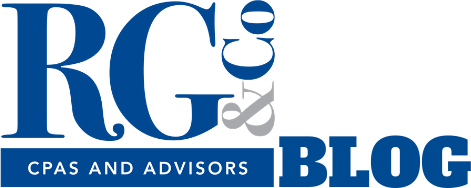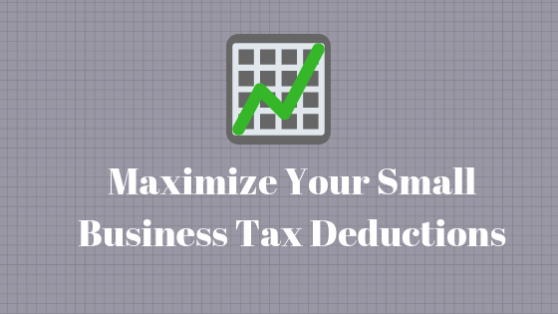Most small business owners start the new year with high spirits. The close of the year typically brings about more business from consumers and other companies looking to dump their budgets, and you have all the hope of what your business can accomplish in the coming year.
While it’s not always at the top-of-the-mind, the end of the year is also a great time to start thinking about tax planning. By making some strategic choices at the end of the year, you can put your business in a better financial position when it comes time to file your taxes.
Small businesses need to maximize every dollar that comes in and out of their company. This approach should also apply to how you think about your taxes — specifically, your tax deductions.
There are many strategic ways to deduct expenses from your small business, and by taking a calculated approach to your tax preparation, you can optimize your returns and limit your tax liabilities.
Here are a few simple ways for small businesses to maximize their tax deductions.
Know Your Qualifying Deductions
Small business owners need to have a clear understanding of what expenses they write off on their taxes, or they risk receiving a penalty from the IRS. For an expense to qualify as a
Below are a few common write-offs for small businesses (outside of your typical business expenses).
- Health insurance premiums, if self-employed
- Business travel and transportation costs
- Home office expenses
- Employee salaries
- Interest payments for business costs
- Retirement plan contributions
To see if your small business qualifies for any of the write-offs above, contact Rivero, Gordimer & Company, a tax and accounting CPA Firm in Tampa, FL.
While it’s important to know what business expenses you qualify for, it’s equally important to know what you don’t. For instance, under the new Tax Cuts and Jobs Act, items like employee parking and transit are no longer deductible.
Time Income and Expenses Strategically
Your end of the year cash flow can have a huge impact on your tax planning. There are several strategies to help you optimize your short-term and long-term tax strategies.
Whether you want to defer signing a client or delay an invoice to avoid moving into a new tax bracket or purchase a new asset in an effort to take advantage of the new $20,000 small business expense deduction, timely financial decisions can have a significant impact on your taxes.
By talking to an experienced tax planner about what expense and income
Get Creative with Your Write-Offs
There are a ton of obvious write-offs for your small business, but what other potential write-offs exist for your business?
While a CPA would be able to provide the most insight into what you qualify for, here are some creative expenses that might be applicable (with clear and concise recordkeeping).
- Company-related meals and entertainment
- Legal and accounting fees
- Rent on machinery or other equipment
- Advertising and marketing fees
- Property repairs and maintenance
- Depreciation on property
- Contracted labor
Successful business owners use every strategy at their disposal to increase the bottom line. While you might not think of taxes as a business opportunity, there are several ways to approach your business taxes strategically.
You should always work with an experienced CPA Firm to help you maximize your yearly tax deductions, but the ideas above can provide you a foundation to build on. If you’d like to talk to a tax professional, contact the Tampa CPA Firm, Rivero, Gordimer & Company today!




